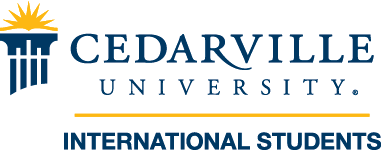Simplify your money management by setting up a bank account and getting a debit or credit card. Get started with these banking resources to help you through the process!
Opening a Bank Account
What to Bring to the Bank
U.S. financial institutions are required to verify the identity of everyone who wishes to conduct financial transactions there, so the bank will need the following from you before you can open an account:
- Your unexpired passport
- Your I-94
- Your I-20
- A letter from ISS requesting the bank accept the W8-BEN as an alternate form of identity verification, or a U.S. Social Security Number (SSN)
- A letter from ISS confirming your residential status at Cedarville University and requesting the bank’s assistance in opening your account
Banking Options
Local Banks
Online Banking Options
Types of Accounts and Cards
Checks and Deposits
How Do I Cash a Check?
To cash a check, you will need to endorse it by signing your name on the back. In addition, you will be asked for personal identification in the form of a driver’s license, a state of Ohio ID card, or a Cedarville University ID card. Some stores will cash a check for you if you shop there regularly. Supermarkets may allow you to pay by check, with authorization from their credit department, if you present the ID they request (usually an Ohio driver’s license).
How Do I Deposit Foreign Currency?
If you deposit a check drawn on a foreign bank in your U.S. checking account, it may have to go through a transfer process, which may incur international transaction fees. This means that the money is not available to you until the U.S. bank has collected it from the foreign bank. It may take several weeks before the money is credited to your account.
In countries with restrictions on foreign exchange, you may need to provide your sponsor or your family with certification of enrollment in order to receive money from your home country. Letters of certification are available, by request, in the International Student Services office.


















